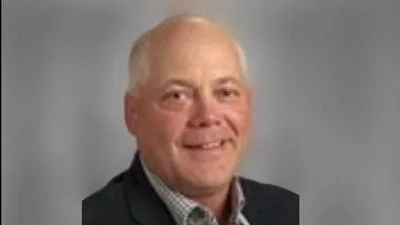Devin LeMahieu, Wisconsin State Senator for 9th District | Facebook
Devin LeMahieu, Wisconsin State Senator for 9th District | Facebook
According to the Wisconsin State Legislature's official website, the bill was described as follows: "an incumbent transmission facility owner’s right to construct, own, and maintain certain transmission facilities and Public Service Commission procedures if the transmission facility is a regionally cost-shared transmission line".
The following is our breakdown, based on the actual bill text, and may include interpretation to clarify its provisions.
In essence, this bill establishes the rights and responsibilities of incumbent transmission facility owners in constructing, owning, and maintaining certain transmission facilities connected to their existing infrastructure, as approved in the Midcontinent Independent System Operator's (MISO) transmission plan. It mandates that these owners notify the Public Service Commission (PSC) of their intention to undertake such projects within 90 days of plan approval or the bill’s enactment. If an owner opts out of construction, they must justify their decision, allowing the PSC to reassign the project based on cost, efficiency, and reliability considerations. The bill also requires incumbent owners to provide cost estimates derived from competitive bids, submit quarterly updates to the PSC, and report costs charged to out-of-state energy consumers to state leaders. The provisions and related rights sunset after 10 years. The bill takes effect immediately after publication.
The bill was co-authored by Representative Kevin Petersen (Republican-57th District), Senator Howard L. Marklein (Republican-17th District), and Senator Van H. Wanggaard (Republican-21st District).
LeMahieu graduated from Dordt College in 1995 with a BA.
LeMahieu, a Republican, was elected to the Wisconsin State Senate in 2015 to represent the state's 9th Senate district, replacing previous state senator Joe Leibham.
In Wisconsin, the legislative process starts when a senator, constituent, group, or agency proposes an idea for a bill. After drafting, the bill is introduced, numbered, and referred to a committee for review and public input. If approved, it moves through three readings and votes in both the Senate and Assembly. Once both chambers pass the same version, the bill goes to the governor, who can sign it, veto it, or let it become law without a signature. Only a small share of bills introduced each session ultimately become law. You can learn more about the Wisconsin legislative process here.
| Bill Number | Date Introduced | Short Description |
|---|---|---|
| SB28 | 02/12/2025 | An incumbent transmission facility owner’s right to construct, own, and maintain certain transmission facilities and Public Service Commission procedures if the transmission facility is a regionally cost-shared transmission line |


 Alerts Sign-up
Alerts Sign-up